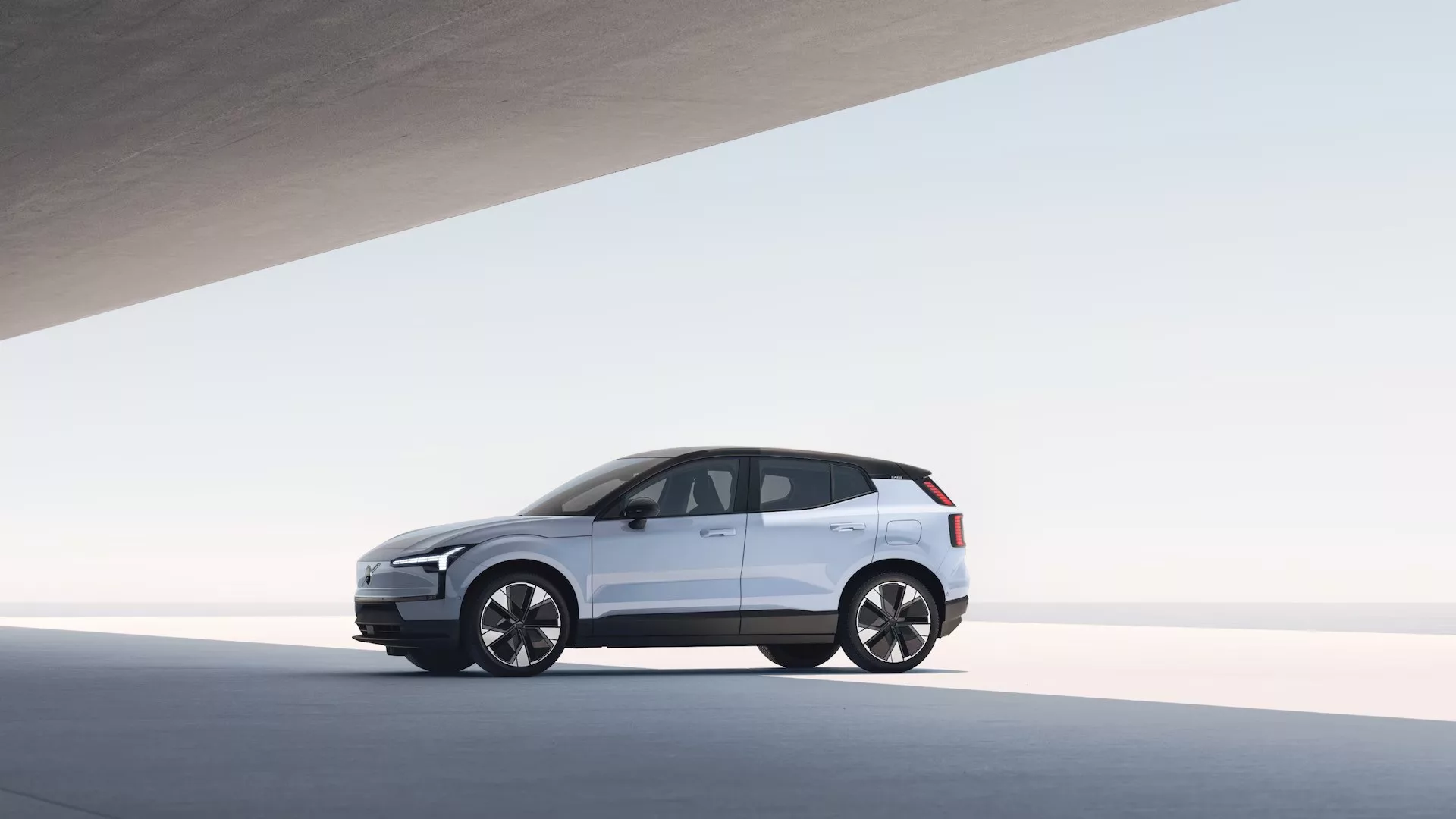The Volvo EX30 is making waves as the brand’s most environmentally friendly electric vehicle yet, with a carbon footprint remarkably lower than its predecessors. Detailed in a comprehensive life cycle assessment (LCA), it reveals just how influential 200,000 km of driving can be, showing the EX30 to be about 60% greener than the petrol-driven XC40 ICE.
Understanding the Volvo EX30’s Carbon Footprint
The report dissecting the EX30’s carbon footprint isn’t just about numbers; it’s a deep dive into the materials and processes that contribute to greenhouse gas emissions throughout the vehicle’s life span. From raw material extraction to its final days, this analysis is crucial for understanding and minimizing environmental impacts.
Charging Matters: The Impact of Wind Energy
Choosing wind power as your electricity source for charging the EX30 can slash its carbon footprint significantly—a testament to why the world urgently needs to invest in renewable energy infrastructure to unveil the true eco-potential of electric vehicles.
Volvo’s Transparency in Electric Vehicle Production
Jonas Otterheim, head of climate action at Volvo, emphasizes the importance of not just transitioning to electric vehicles but doing so with a clear understanding of the challenges and potential for reducing emissions further. Detailed studies on the EX30’s sustainability are about guiding the industry towards more eco-friendly practices.
With the carbon footprint data of the EX30, EC40, and EX40 electric vehicles publicly available, Volvo is equipping customers with the knowledge they need to make more informed decisions when picking their next electric car.
In Pursuit of Net-Zero Emissions
Championing sustainability is an all-encompassing effort for Volvo. The EX30’s journey from design to delivery is filled with opportunities to cut greenhouse gas emissions. By 2030, Volvo strives to be an all-electric car company and aims to nullify its greenhouse gas emissions by 2040.
The EX30 sets a new standard for using recycled materials within a Volvo car, showcasing unparalleled commitment to environmental responsibility.
Cradle-to-Gate: The Volvo EX30’s Manufacturing Impact
Focusing on the car’s “cradle-to-gate” impact, the EX30 demonstrates impressive stats. About 60% of the car’s overall carbon footprint stems from the production process and materials, excluding the running and end-of-life emissions.
Volvo has set its sights on further diminishing the CO2 footprint of the EX30 by working closely with suppliers to improve battery production and integrate more recycled content into manufacturing.
The Rollout and Recognition of the Volvo EX30
Production of the EX30 commenced in November 2023, with the first cars making their way to European customers by year’s end. Garnering several accolades, including the Small SUV/Crossover of the Year and Carwow Car of the Year 2024, the EX30 is a testament to Volvo’s dedication to sustainability and innovation.
By adopting an approach that combines environmental stewardship with technological progress, Volvo ensures steps taken with the EX30 resonate well beyond the automotive industry, setting a new benchmark for eco-conscious car manufacturing.
